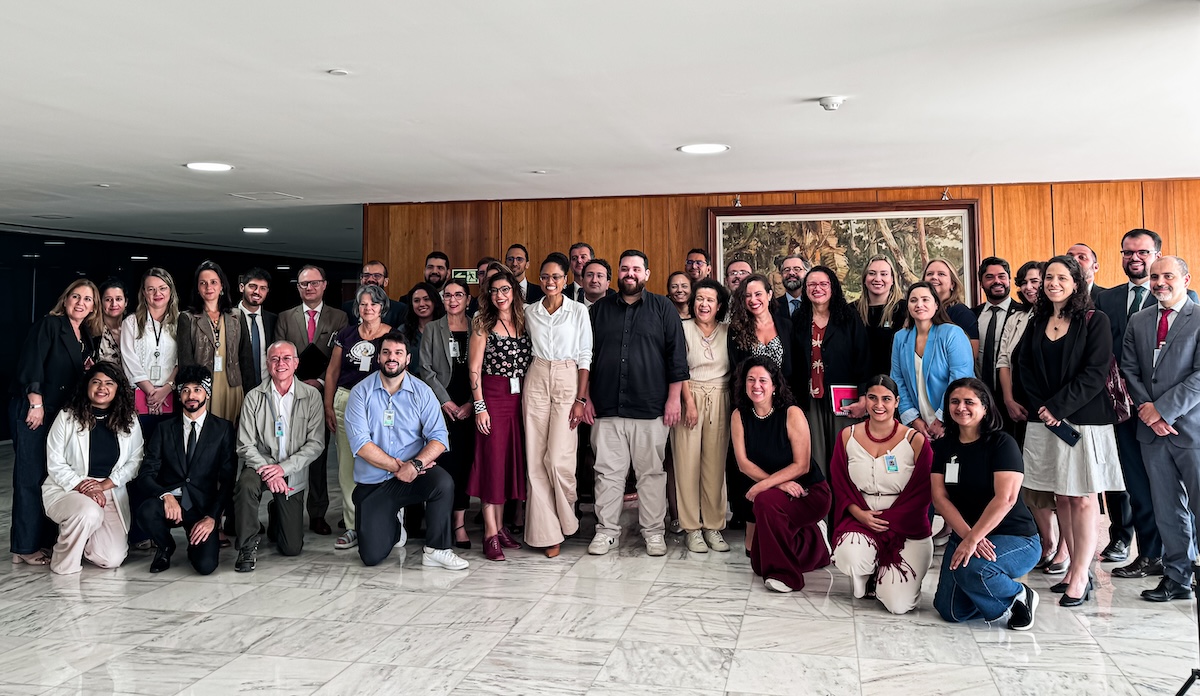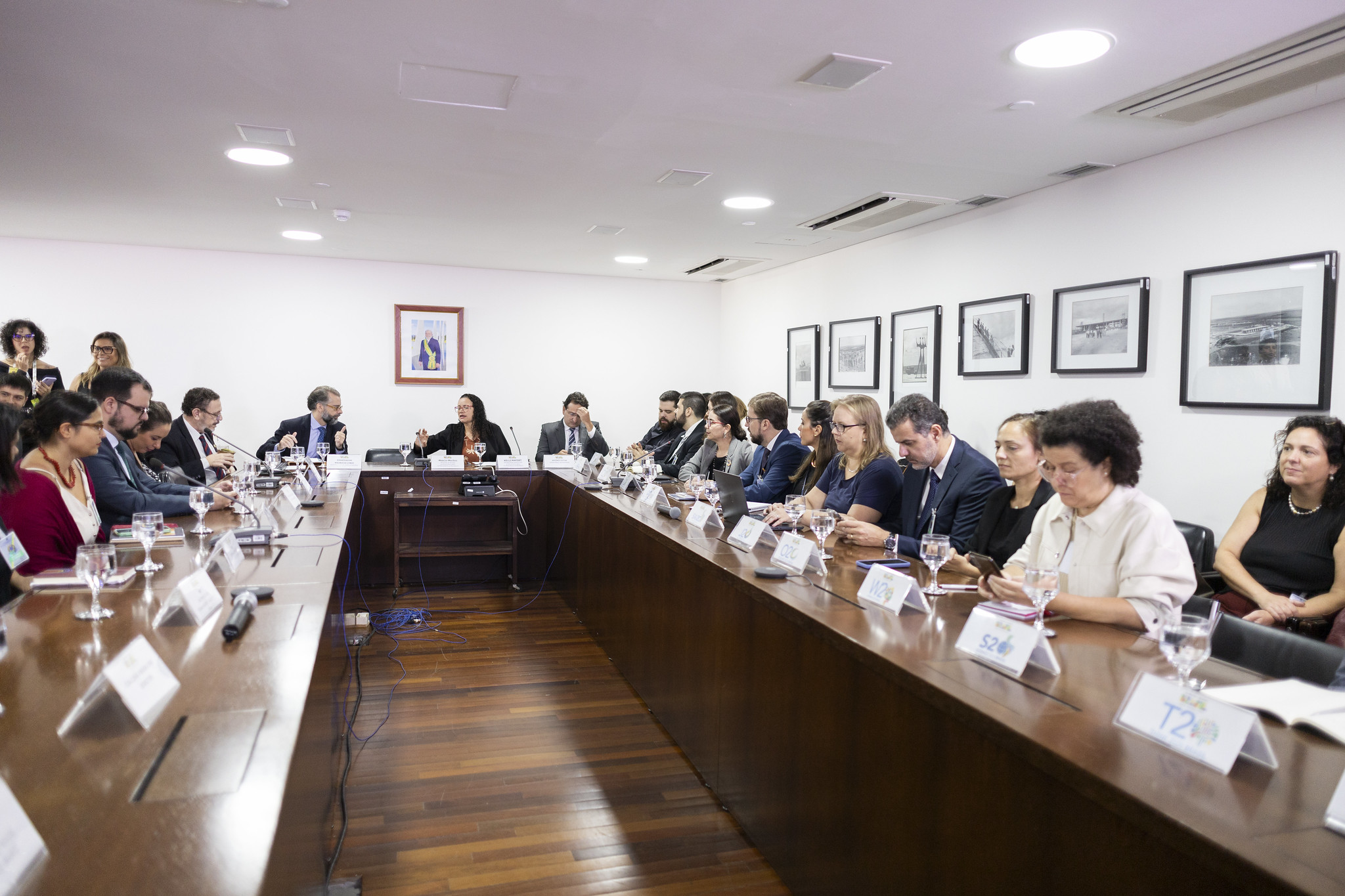Civil society integrated into the G20: unprecedented meeting in the federal capital
The First Extended Meeting of the G20 Social marks an initial stride towards bringing civil society closer to the traditional Finance and Sherpas tracks, through participation in engagement groups. The meeting happened this Thursday (25) at the Planalto Palace in Brasília/DF.

How can we aspire to construct a fairer world and foster a sustainable planet without the active involvement of its inhabitants? This year, Brazil's G20 Presidency underscores the imperative to incorporate civil society into discussions and initiatives addressing inequalities and environmental challenges. The inception of the G20 Social embodies this objective: a dedicated platform designed to formally integrate, with the support of the Federal Government, the 13 engagement groups that have historically operated alongside the forum of the world's largest economies.
This Thursday (25) a significant and unprecedented advancement occurred: the First Extended Meeting of the G20 Social convened engagement groups, social movements, and federal government officials, including Diplomat Antonio Freitas Finance Track coordinator, and Ambassador Mauricio Lyrio, Sherpas Track coordinator. The event, held at the Planalto Palace in Brasilia/DF, carried symbolic weight as it welcomed civil representatives to the seat of the Federal Executive for the Meeting.
"I consider this a very significant moment. Like any unprecedented action, the G20 Social requires a lot of work, tolerance, and inclusion capacity from its protagonists. What’s important is that it becomes a democratic space, capable of assimilating our peoples’ pains, anxieties, and needs," declared Márcio Macedo, Minister of the Presidency of the Republic’s General Secretariat, as he opened the meeting.
"From a substantive point of view, the goals set by the Brazilian presidency are already a result of the participation of social movements, such as the issue of combating hunger and poverty, strengthening family farming, and creating income transfer and school meal programs. The international community recognizes that in the countries where these policies have been successful, popular participation has been fundamental," added Sherpa Mauricio Lyrio, highlighting the importance of having social movements contribute to the G20 elaborations.
“There are several activities, a team from the Ministry set specifically to accompany the G20 Social, to promote civil society engagement with the themes. Our goal is to reach the G20 Social Summit with plenty of content, with civil society participating and organizing together with the traditional actors”, added Antonio de Freitas, from the Ministry of Finance, in charge of coordinating the Finance Track. The diplomat showed the agenda detailing the Track's past collaborations with civil society and presented the upcoming dates. So far, the Ministry of Finance has had five encounters with civil society, and the next one is slated for May 22nd and 23rd in Brasília/DF, focusing on international taxation.

After the opening speeches, the session continued with interventions from engagement group representatives who, in addition to general recommendations, shared their backgrounds, central themes, logistical issues, and expectations leading up to the Social Summit. The issues raised included financing points; the need to build resolutions for long-term public policies; a cross-cutting alignment with the racial agenda; and the continuity of the initiative in future G20 presidencies.
In the afternoon, the event continued with a joint session among the engagement groups and a parallel space dedicated to social movements.
Social Summit
The Social Summit is another innovation of the Brazilian Presidency for G20 Social. The meeting will precede the traditional Summit of Heads of State and Government. Both will take place in November, in Rio de Janeiro (RJ). The summits are the final acts of Brasil's G20 Presidency leading to South Africa taking over the Group.
Renato Simões, the national secretary for Social Participation, stressed the autonomy of the groups in relation to the government and provided further information about the process leading up to the Social Summit, scheduled for November 14 to 16. The program for this period of anticipation will include fairs, cultural attractions, and political acts. The secretary shared that three seminars will be organized between now and November (one for each of the G20 thematic axes) and that the platform Brasil Participativo will be one of the tools for engagement. Thousands of people are expected over the three days, with accommodation, food, and transportation guaranteed for at least 4,000 participants.